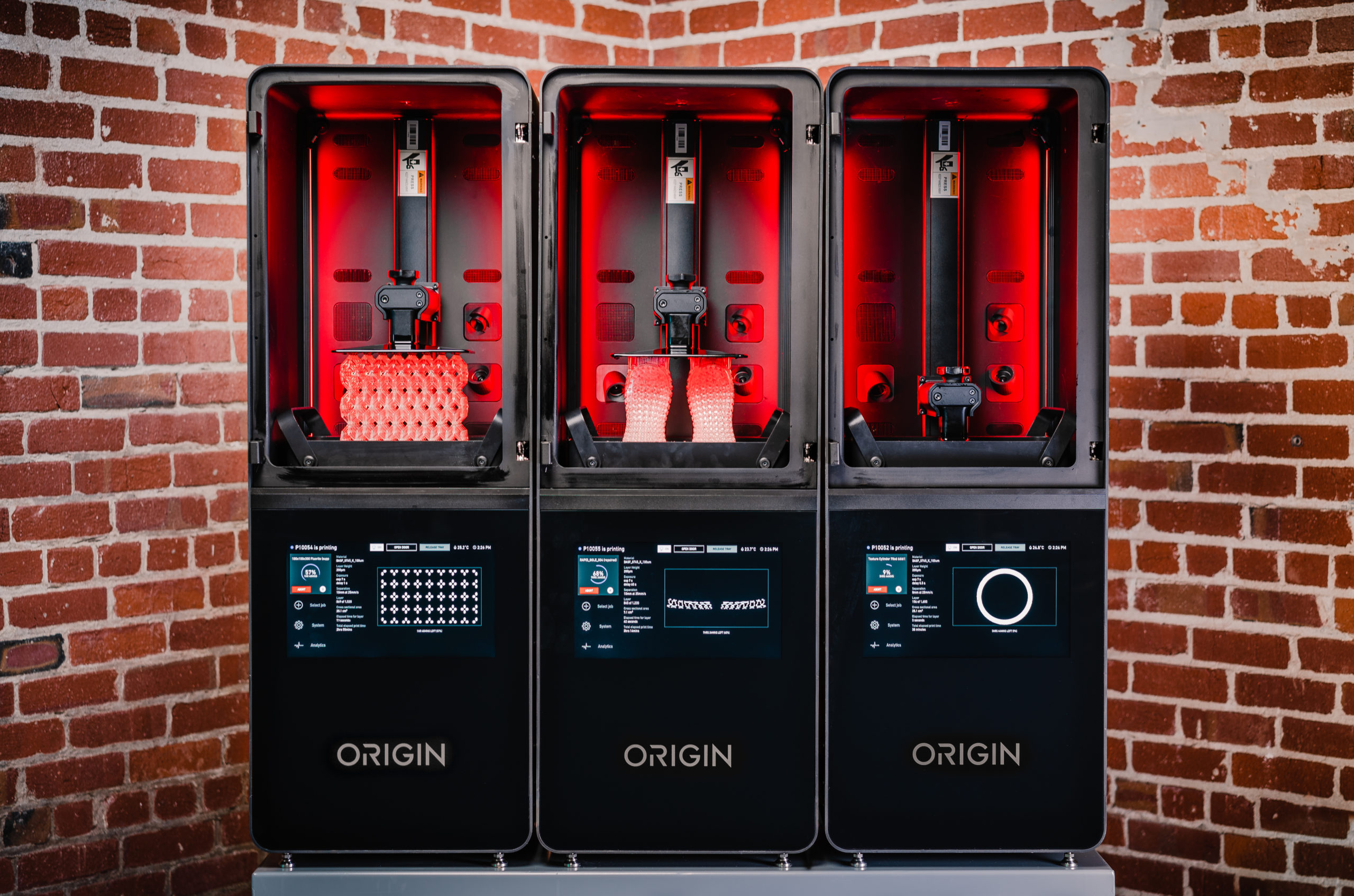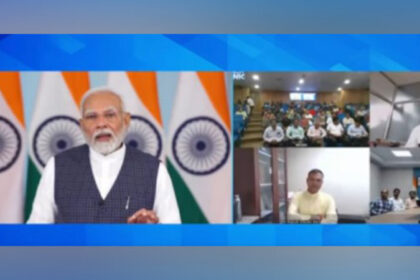Origin’s resin-based Programmable PhotoPolymerisation (P3) technology expands Stratasys leadership in the fast-growing market for 3D-printed mass production parts
Bengaluru, NFAPost: Stratasys Ltd announced that it signed an agreement to acquire 3D printing start-up Origin Inc. in a transaction for total consideration of up to $100 million, including cash and stock.
The merger enables Stratasys to expand its leadership through innovation in the fast-growing mass production parts segment with a next-generation photopolymer platform. Subject to various approvals and other closing conditions, the acquisition is expected to close in January 2021.
Stratasys expects Origin’s proprietary Programmable PhotoPolymerization (P3) technology to be an important growth engine for the company, adding up to $200 million incremental annual revenue within five years.
The acquisition will help fortify Stratasys’ leadership position in polymers and production applications of 3D printing in industries such as dental, medical, tooling, and select industrial, defense, and consumer goods segments.
Under the terms of the agreement, the total consideration for the transaction is $60 million paid on closing ($6 million of which is subject to the founders’ retention over 3 years) and $40 million that is subject to performance-based earnouts over 3 years.
The acquisition will be paid using a combination of stock of approximately $45 million and cash of approximately $55 million at closing and throughout the earnout period. Approximately $32 million of the cash expenditure will be at closing. The acquisition is expected to accelerate Stratasys’ growth rate and be slightly dilutive to non-GAAP earnings per share in 2021, and accretive to Stratasys’ non-GAAP earnings per share by 2023.
The Origin team will join Stratasys and lead the development of its technology and product platform, with a full global launch via the Stratasys go-to-market organization towards mid-2021.
Stratasys CEO Yoav Zeif said the company’s customers are looking for additive manufacturing solutions that enable use of industrial-grade resins for mass production parts with process and quality control.
“We believe Origin’s software-driven Origin One system is the best in the industry by combining high throughput with incredible accuracy. When combined with Origin’s extensive materials ecosystem and our industry-leading go-to-market capabilities, we believe we will be able to capture a wide range of in-demand production applications on a global scale,” said Stratasys CEO Yoav Zeif.
Together with its intended entry into powder bed fusion technology, Stratasys CEO Yoav Zeif said the acquisition of Origin reflects another step in fulfilling the company’s objective to lead in polymer additive manufacturing by offering comprehensive, best-in-class technologies and solutions to create a fully digital additive value chain, designed for Industry 4.0 integration.
According to an internal Stratasys market analysis, manufacturing applications show the most potential for significant growth in the 3D printing industry, reaching approximately $25 billion by 2025. Stratasys anticipates that production-oriented resin-based solutions can address a significant part of the total market for polymer additive manufacturing. In fact, it is estimated that resin polymer-based additive systems will grow at a 20% annual rate from 2020 to 2025.
Origin’s P3 technology, an advancement on Digital Light Processing (DLP) principles, cures liquid photopolymer resin with light. The company’s first manufacturing-grade 3D printer, Origin One, precisely controls light, heat, and force, among other parameters, via Origin’s closed-loop feedback software. This new technology enables customers to build parts with industry-leading accuracy, consistency, size and detail, while using a wide range of commercial-grade, durable resins.
BASF 3D Printing Solutions GmbH Managing Director François Minec said now as part of Stratasys, the company is confident that together it can take on the broader manufacturing ecosystem.
“Origin works with a network of material partners such as Henkel, BASF and DSM to develop resins for its system. “We partnered and developed materials with Origin before Origin One was launched because we believed in their technology and vision for the future of photopolymers in additive manufacturing” said BASF 3D Printing Solutions GmbH Managing Director François Minec.
ECCO Vice President Research & Development Jakob Møller Hansen said Origin One systems have been successfully deployed across a variety of industries, including shoe manufacturer ECCO.
“We’re pleased to continue our cooperation with the Origin team as an exclusive partner within the area of the footwear industry categorized as Direct Injection Production, now also by leveraging Stratasys’ global infrastructure,” said ECCO Vice President Research & Development Jakob Møller Hansen.
The COVID-19 pandemic further illustrated Origin’s technology fit for production applications, including hundreds of thousands of clinically validated nasopharyngeal swabs, thousands of PPE face shields, and ventilator splitters for hospitals.
Origin CEO and co-founder Christopher Prucha said he founded the company to create a whole new additive manufacturing platform that enables mass production of end-use parts with incredible accuracy, consistency, and throughput along with a wide range of available materials.
“Stratasys is the best company for us to join to achieve our vision, giving us an unparalleled opportunity to significantly expand market reach and enable us to bring our P3 technology to a larger audience,” said Origin CEO and co-founder Christopher Prucha.
Based in San Francisco, Origin is pioneering a new approach to additive manufacturing of end-use parts. Origin One, the company’s manufacturing-grade 3D printer, uses Programmable PhotoPolymerization to precisely control light, heat, and force, among other variables, to produce parts with exceptional accuracy and consistency.
The company works with a network of partners to develop a wide range of commercial-grade materials for its system, resulting in some of the toughest and most resilient materials in additive manufacturing. The company was founded in 2015 and is led by alumni from Google and Apple. Investors include Floodgate, DCM, Mandra Capital, Haystack, TDK Ventures, Stanford University, and Joe Montana.





